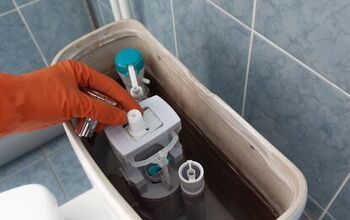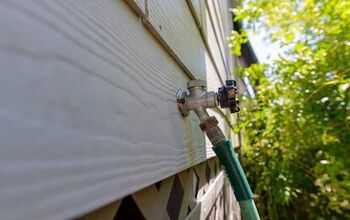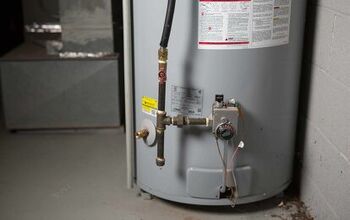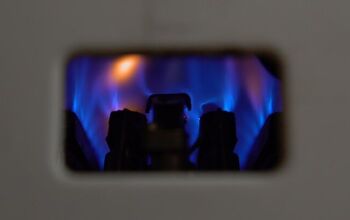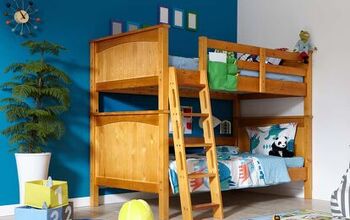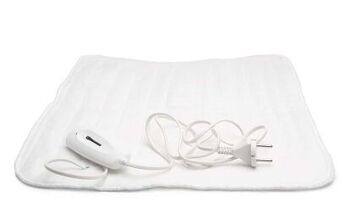Are Eljen Septic Systems Any Good? (Here Are the Details)

Overall, no homeowner budgets for repairing or replacing a septic system that fails. Installing a new septic system can range anywhere from $4,000 to upwards of $20,000 when you factor in the costs of install. When the system is not properly maintained, a number of problems can arise and rebuilding a failed septic is an expensive burden to bear.
The same is true for the Eljen GSF and Mantis Septic Systems, alternatives to conventional leach field methods. Your Eljen wastewater system can offer many years of trouble-free service when it is appropriately operated and maintained.
If you are wondering whether Eljen septic systems are any good, the short answer is yes. They are cost-effective systems which have proved over 30 years of success. They offer a patented Bio-Matt technology which absorbs sewage more efficiently than other septic systems, as well as a pre-treatment process which treats the effluent twice.
We’ll dive into further detail about the two septic systems offered by Eljen: Their GSF System and their Mantis System. Continue reading to learn how these systems work, and how to maintain them to ensure optimal performance.
Do You Need a Septic System Installation or Replacement?
Get free, zero-commitment quotes from pro contractors near you.

The Eljen Corporation
When you’re shopping around for a new septic system, you’ll likely come across those offered by the Eljen Corporation. They have had continued success in the onsite wastewater industry for over 30 years. The Eljen Corporation also currently has tens of thousands of their systems in use around the world.
Their patented GSF technology is backed by research and nationally recognized engineering scientists from the University of Connecticut, further lending to their credibility. This system is also recommended by experts in the industry and considered to be one of the most dependable wastewater treatment methods on the market today.
The Eljen GSF System
Eljen’s GSF, or Geotextile Sand Filter, system can be an affordable upgrade from other traditional septic technologies. Most septic systems treat septic effluent once, whereas, the GSF’s pre-treatment process treats the effluent twice. Their patented Bio-Matt technology allows for the soil to absorb the sewage more efficiently, offering a system that performs better over a smaller area than other conventional systems.
The design of the system is based on scientific research that asserts that enhanced effluent quality provides improved soil absorption rates. Eljen’s GSF System begins with the incoming bacteria and effluent running through pipes that serve to dispense the material over the various modules.
Open-air networks in the modules provide the perfect environment for good bacteria to form on the Bio-Matt fabric. This beneficial bacterium is what treats the effluent. After the effluent has completed its passage through the GSF Modules, the treatment process continues with the formation of a lighter secondary biomat on the layer of sand at the base of the system.
The resulting treated effluent is then absorbed by the native soil or fill, to provide the final filtration.
Why Eljen GSF System?
Aside from the system’s patented technology and products, there are a number of other reasons why the Eljen GSF System might be the right septic system for your property. Unlike traditional wastewater treatment methods, this system requires a much smaller installation area. It also has an overall lower site impact, doesn’t require stone, is very lightweight and simpler to install and handle.
Additionally, the GSF System offers a greater long-term performance over conventional septic technologies. Therefore, if you’re looking for a wastewater treatment system that is easy to install, is guaranteed to get the job done and works great for smaller properties, the Eljen GSF System is for you.
The Eljen Mantis System
When it comes to Eljen Septic Systems, your second option is their Mantis Wastewater Series. The Mantis System is a wastewater distribution and removal method that introduces clarified effluent into the native soil by way of a patented filtering process. The system effectively keeps any biological growth within the Mantis units and away from the native soil, protecting the soils long term acceptance rate.
The Support Distribution Pipe is positioned in the center of the unit and serves to secure the five Filter Support Modules and distribute the septic effluent. These modules act, what Eljen refers to, as 3-D Mini-Trenches, by filtering the septic tank sewage. The open-air networks within the Filter Support Modules promote and provide aerobic bacteria to grow on the geotextile fabric, or Bio-Matt interface.
Septic effluent will flow through the modules and reach the specified sand layer surrounding each unit, providing additional filtration. This sand layer serves as the secondary filtration zone and maintains the native soil’s long-term acceptance rate and structure. Final filtration occurs in the approved fill or native soil while simultaneously supporting unsaturated flow.
GSF and Mantis System Design
Whether you choose to install an Eljen GSF or Mantis System, it will be installed atop a layer of clean, medium to coarse sand. The effluent will flow from the septic tank and into the various modules through perforated plastic piping.
The GSF Module and distribution pipe assembly will involve a geotextile fabric covering. This fabric’s purpose is to prevent any silt or backfill materials from infiltrating into the modules. On the other hand, geotextile cover fabric is not needed for the Mantis system.
Do’s and Don’ts for Eljen Septic Systems
Examine the following list in order to understand the do’s and don’ts involved with your Eljen septic system and effectively prevent any possible system issues.
- DO have your septic pumped by a licensed professional at least every three years. You can look on the internet, or contact your local health department to find a qualified septic tank service provider.
- DON’T park or drive over any section of your septic system. The area above your system should remain untouched and contain only a mowed grass cover. Nearby tree roots or vegetation could potentially damage or clog the system.
- DO conserve water. To avoid any associated septic problems, repair leaks quickly, only run dishwashers and washing machines when full, take shorter showers and use water-saving fixtures in your home.
- DON’T put a large amount of grease or cooking oil into the system. Instead, dispose of these materials in your garbage.
- DO avert roof drains, gutters, and surface water from hillsides and driveways away from your septic system. Additionally, avoid putting household footing drains or sump pumps near the system.
- DON’T introduce any non-degradable items into the system. These include, but are not limited to, sanitary products, disposable diapers, cigarettes, and plastic.
- DO bring any excess harmful household chemicals for disposal to your local approved hazardous-waste collection center. Use any of these hazardous chemicals such as toilet bowl cleaner and bleach sparingly.
- DON’T put any materials such as oil, gasoline, paint, paint thinners, antifreeze, pesticides, or other poisonous chemicals into your septic system.
- DO keep a dedicated record of inspections, pumping, and other maintenance to ensure that everything is up constantly up to date.
- DON’T introduce commercial septic tank additives into the system. These can actually hurt your system in the long run and generally do not help.
- DO learn the location of your septic system and tank so that you can carry out regular maintenance or provide this information to a licensed professional.
- DON’T use a garbage disposal unless your Eljen system has been designed and installed in accordance with the requirements outlined by Eljen’s dedicated Garbage Disposal, Design, and Installation Guidelines.
Do You Need a Septic System Installation or Replacement?
Get free, zero-commitment quotes from pro contractors near you.

Wrapping it Up
When you’re making the decision about what septic system is right for your home, you’ll most likely come across the GSF and Mantis Systems offered by the Eljen Corporation. Both of these systems can be excellent alternatives to conventional wastewater treatment methods, provided that they are properly installed, operated, and maintained.

Jessica considers herself a home improvement and design enthusiast. She grew up surrounded by constant home improvement projects and owes most of what she knows to helping her dad renovate her childhood home. Being a Los Angeles resident, Jessica spends a lot of her time looking for her next DIY project and sharing her love for home design.
More by Jessica Stone



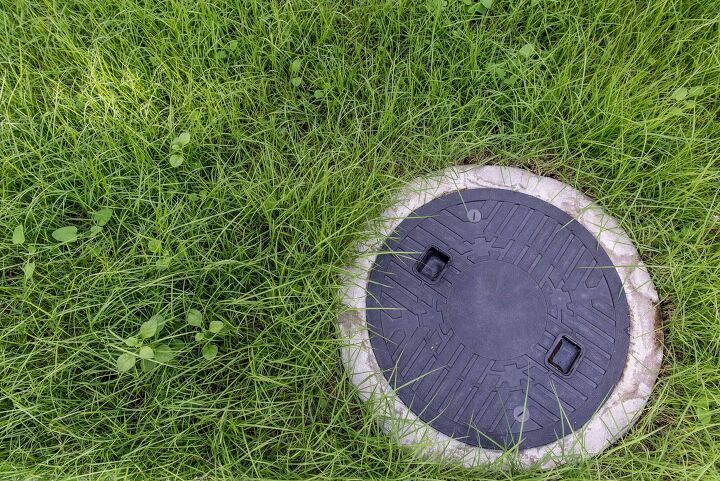







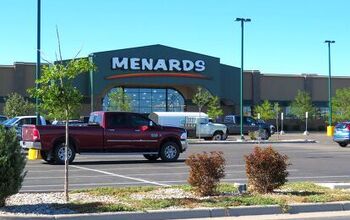
![Finishing Basement Without Permit [Is It Really Illegal?]](https://cdn-fastly.upgradedhome.com/media/2023/07/31/9070078/finishing-basement-without-permit-is-it-really-illegal.jpg?size=350x220)

